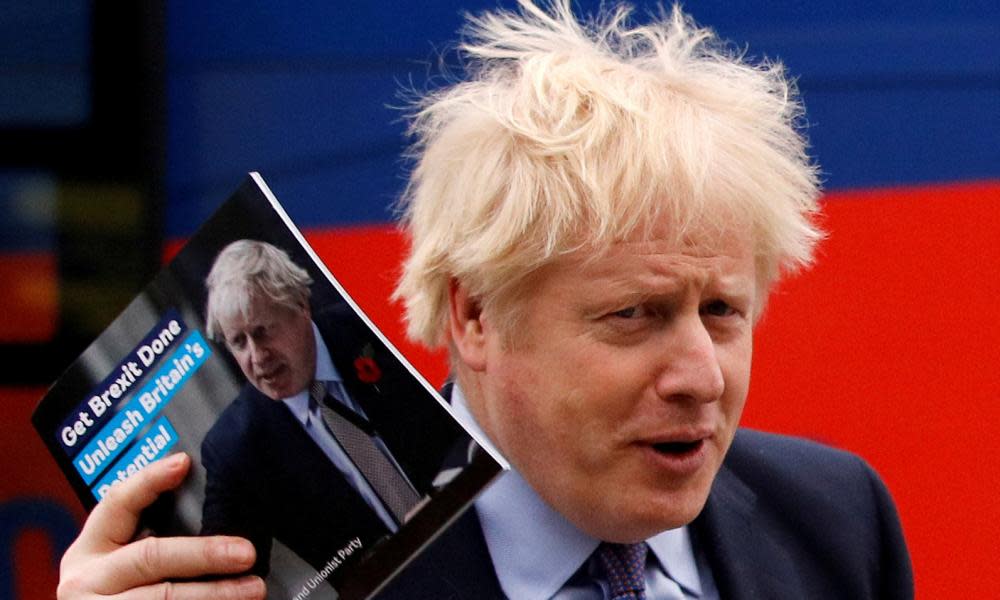Letters: this government has betrayed pensioners

I nearly fell off my chair when I read Andrew Rawnsley’s claim that “not for the first time, a Conservative government has rewarded its core vote of the retired at the expense of workers” (“Boris Johnson’s generation game: the young and poor pay for the old and rich”, Comment). Anyone would think that in the previous week the government hadn’t “suspended” its triple lock guarantee to recipients of the state pension because the increase in average earnings would otherwise produce a significant increase in the pension payout.
But Rawnsley has in mind only the increase in national insurance to inject funds into the NHS and, if it is lucky, social care. In so doing, he overlooks the betrayal of people on a state pension. This is surely now the main electoral worry for the Conservatives. Pensioners have just been very badly let down by the government, which has shamelessly broken the Conservative manifesto commitment to retain the triple lock for the duration of the current parliament – and pensioners vote.
David Head
Peterborough
Yvonne Roberts’s failure to acknowledge the nearly one-fifth of pensioners living in poverty was astonishing (“These strange times have made us experts in loss and loneliness”, Comment). Instead, she describes retirement communities as “plush establishments... for those with sufficient income”. What about those who are not so fortunate?
Joanna Whitehead
London E8
Cruelty to animals continues
The author and campaigner Paula S Owen asks if we can, hand on heart, say we are any more humane to animals today than we were 100 years ago (“How cruel death of a little stray dog led to riots in 1900s Britain”, News). Given that the latest figures suggest that every year in the UK we now experiment on about 3 million laboratory animals, report more than a million cases of animal cruelty against “pets” and produce more than 700 million intensive/factory farmed animals, the answer is surely a resounding “no”.
Tracey Gregory
Hemingford Abbots, Cambridgeshire
Managers, to your mops
I read with great interest your article about how poorly cleaners are being treated by a company called Churchill Group, which manages Facebook’s London offices (“Union activist who led protests against Facebook fears for job”, News). Cleaners say that they were told to clean a washroom with five lavatory cubicles and a shower in one minute and 30 seconds. A spokesperson for Churchill Group responded that “each task has been timed and undertaken by our own management to ensure they are realistic and achievable”.
But it is one thing to time a specific job and another thing altogether to time these same tasks across a working day. Telling someone to clean a washroom in one minute 30 seconds might just be achievable if this were the only task they had to do, but this does not mean that one could clean 10 such washrooms in 15 minutes, any more than if someone could run a mile in four minutes they could run 10 miles in 40 minutes. No wonder the cleaners are exhausted.
I have a suggestion. Instead of timing cleaners while they work, why don’t managers work alongside the cleaners for a day – leading by example, as it were – and help them complete the tasks that they have to do for that day? Start and finish at the same time the cleaners do. Is it still possible to clean 12 floors in the time that was previously allocated to five? If so, Churchill can stick to its present policy; if not, it should revise its schedules.
Dr Kenneth Smith
London E2
Lack of ventilators cost lives
Gabriel Scally justifiably castigates Johnson’s government for failures, including omitting to fund an urgent programme of improving workplace ventilation before winter sets in (“The winter Covid plan will be marked by delay, confusion and ignorance. Sound familiar?”, Comment. But ventilators used to treat Covid are also important.
Prof Devi Sridhar, Edinburgh University’s chair of global public health, pointed out in March 2020 that the government squandered nine weeks by failing to ensure enough PPE and ventilators. It goes back further than that: despite a 2016 simulation highlighting the risk of “inadequate ventilation” in a future pandemic, successive Conservative governments failed to ensure sufficient supplies of ventilators.
Scally’s important point is that, in contrast to the Johnson government’s bumbling approach, those countries whose strategy controlled the virus not only saved lives but safeguarded their economies.
David Murray
Wallington, Surrey
The business of flying
While Irvin Slater (“One class, fewer planes”, Letters) has a well-meaning solution to reduce the carbon impact of flying, it would not work. Operators generate little or no profit and even losses on standard class over the Atlantic; most of their profits are from business and first-class passengers.
John Fernandes
London SE9
The fear factor
You report that Emma Raducanu pulled out of Wimbledon “after experiencing ‘breathing difficulties’” (“How teen stars are taking the sporting world by storm”, News). In fact, she experienced breathing difficulties. Whatever their cause (and Raducanu herself has explained that she had been overwhelmed by events), her symptoms were real. They do not deserve to be belittled by inverted commas, suggesting that her physical symptoms did not exist.
Anyone who has experienced proper fear – simply standing on a diving board or waiting to walk on to a school stage – will know that psychological stress produces physical effects. The fact that such symptoms are a response to a difficult situation does not make them less real or important and makes it all the more impressive that Raducanu has subsequently channelled her emotions to such a magnificent effect.
Dr Lucy Pollock
Taunton, Somerset

 Yahoo Movies
Yahoo Movies 
